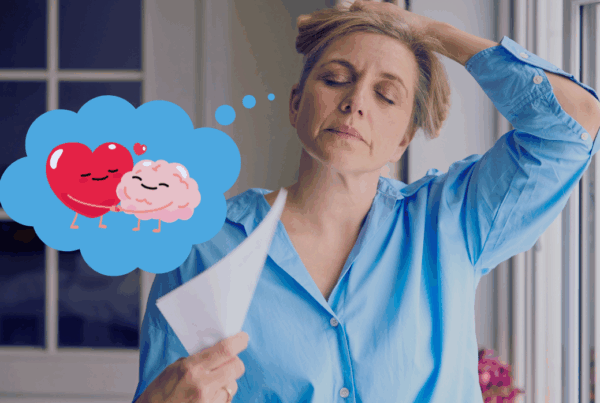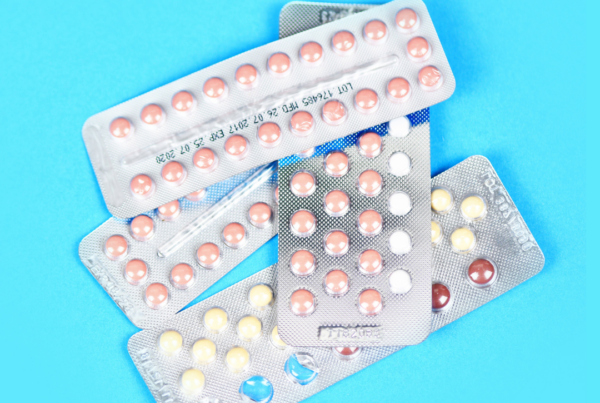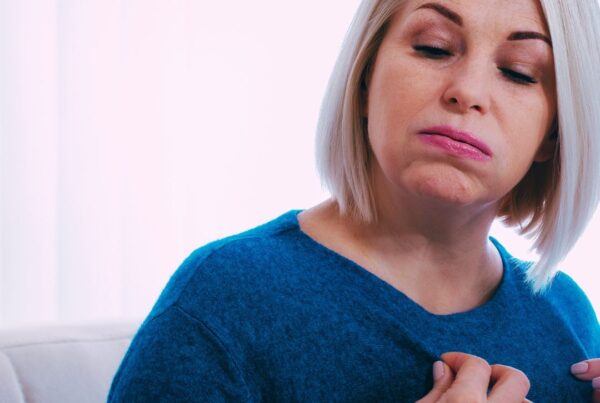early postmenopause stage
What’s happening now?
If your last period was 1-5 years ago, you are in the stage of early postmenopause.
The ovaries have stopped producing oestrogen and progesterone although you will still have some tissues producing hormones. Symptoms of low oestrogen dominate at this time – flushes, sweats, brain fog and vaginal dryness.
Now you have low but also more stable hormone levels. You can’t generally fall pregnant (although it is not completely unheard of in the first years after your period stops). Low eostrogen, progesterone and falling testosterone lead to the main symptoms of postmenopause and to the bone health problem of osteoporosis which accelerates during the first 5 years after your last period. Fortunately for many females, mood and sleep changes start to settle.
(If you are younger than 45, your menopause has come early and you need to see a doctor. Your risk of developing osteoporosis is higher, and it is recommended you take HRT unless there is a reason not to.)
These are some of the main symptoms that can arise from low ovarian hormones
-
Hot flushes
-
Night sweats
-
Dry skin and hair
-
Vaginal dryness
-
Bladder problems
-
Low libido
-
Brain fog
-
Joint and muscle aches
-
Sleep problems
Best treatment for this stage
Maintain or start healthy habits – be active, eat well, get enough sleep , manage your stress.
Hormone treatments can treat symptoms and protect health.
Hormonal treatments that supply the falling oestrogen and progesterone treat the root cause of many symptoms of early postmenopause. They also protect your bones and possibly your heart. Treatments can affect the whole body by using tablets, skin patches or gels, and also used locally in the vagina. Testosterone as a cream can be used for low libido, low energy and brain fog.
Some supplements and products (such as vaginal friendly moisturiser and lubricant) can also be helpful depending on your symptoms. Magnesium supplements can help many menopausal symptoms such as poor sleep, aches and pains.
Now is an important time to start getting your lifestyle in order – be active, eat well, get enough sleep, manage your stress. Reducing alcohol can be helpful for health, sleep and flushes.
These healthy habits will not only make you feel more energetic and brighten your mood in the short term but will protect your health and wellbeing in the years to come.
What’s coming up next?
You will spend the rest of your life in late postmenopause!
Your next stage is late postmenopause. Your body will have been low on oestrogen for years (unless you’ve replaced some!). Symptoms relating to dryness may increase affecting the vagina and bladder. Now is a critical time to address your lifestyle as the risks of osteoporosis (weak bones), cancer, heart disease and dementia may increase from here on in.
This information is for general educational purposes only and does not constitute medical advice. Please see your health professional for advice that is personalised to you.
Key take aways
Once you haven’t had a period for 12 months, and for the next 4 years, you are in early postmenopause stage.
Low oestrogen is responsible for flushes, sweats, brain fog and other symptoms.







